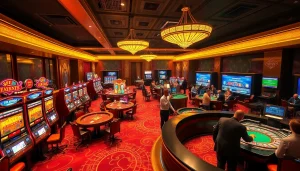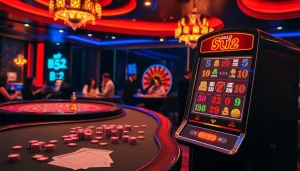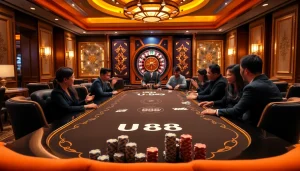Embracing Luxury: A Guide to Experiencing Opulence in Everyday Life
Understanding Luxury: Definition and Context
Luxury is often associated with wealth, elegance, and exclusivity. But what exactly constitutes luxury? The term encompasses much more than just expensive products or services; it speaks to a lifestyle of abundance and refined taste. Luxury goods cater to an elite class of consumers, those whose purchasing power places them above the average consumer. The economic definition categorizes these goods as items for which demand increases disproportionately as income rises. This article dives deeper into the essence of luxury, exploring its definitions, cultural implications, and its psychological underpinnings.
What Constitutes Luxury?
At its core, luxury embodies comfort, aesthetic appeal, and superior quality. It goes beyond basic functionality, offering consumers a unique experience or status that can’t be easily quantified. Luxury products range from haute couture fashion and fine jewelry to high-end automobiles and exclusive travel experiences. They are characterized by meticulous craftsmanship, rare materials, and often, a historical narrative that adds depth to their appeal.
The Evolution of Luxury Goods
Historically, luxury has evolved from the ostentatious displays of the aristocracy to a more immersive lifestyle experience available to a broader segment of the population. The rise of the middle class and increasing globalization of markets have democratized luxury to some extent. The 20th century saw the emergence of luxury brands like Chanel, Louis Vuitton, and Gucci, which became synonymous with opulence and style. As consumers began to demand not just ownership but also unique experiences, luxury brands started to focus more on emotional marketing, storytelling, and authenticity.
Luxury in Different Cultures
Luxury does not share a universal definition across cultures. What may be considered luxurious in one region may be seen as commonplace in another. For instance, in some Asian cultures, luxury may manifest in extravagant celebrations and fine dining experiences, reflective of communal values over individual ownership. In contrast, Western cultures often emphasize personal accumulation of luxury goods as a status symbol. Understanding these cultural nuances is crucial for brands looking to cater to a global audience, ensuring that their luxury offerings resonate authentically within local contexts.
The Psychology of Luxury
The allure of luxury is deeply rooted in psychological factors. It’s essential to understand the emotional connections between consumers and luxury products, as these connections drive purchasing behavior.
The Emotional Appeal of Luxury Products
Luxury products often evoke feelings of prestige and exclusivity. Purchasing these items can fulfill emotional desires for recognition and validation. The psychological gratification that accompanies owning luxury items often leads to what some refer to as “luxury addiction.” This then creates a cycle where consumers continually seek out new luxury experiences to maintain their perceived social status.
Luxury as a Status Symbol
For many, luxury serves as a method to communicate social status and personal success. This phenomenon is rooted in social psychology—possessing luxury items can convey an image of wealth and success to others. Brands capitalize on this by creating an aura of exclusivity around their products. Limited editions, high price points, and selective availability enhance brand desirability and further entrench luxury items as status symbols.
Consumer Behavior in the Luxury Market
Understanding consumer behavior in the luxury market involves recognizing that these purchases are often fueled by emotional reasoning rather than only rational thinking. Many luxury consumers are motivated by intrinsic values associated with beauty, craftsmanship, and heritage. For instance, the preference for timeless pieces over transient fashion trends highlights a deeper appreciation for quality and sustainability in luxury choices.
Luxury Brands: Leaders in the Industry
The luxury market is dominated by several key players who have established themselves as leaders through branding, marketing strategies, and unique offerings.
Top Luxury Brands and Their Influence
Brands like Louis Vuitton, Hermès, and Gucci set the benchmark for luxury. Their influences are seen not only in the products they offer but also in shaping consumer expectations and defining cultural standards. These brands effectively use storytelling to create emotional connections with their clients. The exclusivity of their limited editions tells a story that resonates, ensuring a steady demand that often transcends economic fluctuations.
Brand Loyalty in Luxury Goods
Brand loyalty in the luxury sector is profound. Consumers often form emotional attachments to brands that align with their values and aspirations. This loyalty is nurtured through exceptional customer service, personalization, and an immersive shopping experience. Brands that can maintain this connection while keeping the essence of exclusivity are most likely to thrive.
Case Studies of Successful Luxury Brands
Studying successful luxury brands provides insights into the strategies that lead to their prominence. For example, Chanel maintains its allure by fostering a sense of timelessness while continuously innovating its product lines. Its consistent branding—characterized by elegance and sophistication—reinforces consumer loyalty. Another case study is Rolls Royce, which emphasizes bespoke craftsmanship and personalization, attracting affluent consumers who seek to express their uniqueness through luxury.
Shopping for Luxury: Tips and Tricks
Shopping for luxury can be daunting due to the sheer number of options and the prevalence of counterfeit products. Understanding the nuances of purchasing luxury goods can elevate the buying experience.
Where to Find Authentic Luxury Products
Authenticity is paramount in the luxury market. Consumers should shop directly from brand boutiques, authorized retailers, or well-established online luxury platforms. Websites like Luxury stores provide curated selections of authenticity-verified luxury items, ensuring buyers experience peace of mind while purchasing high-value goods.
How to Spot Counterfeit Luxury Goods
In an age where counterfeits are rampant, knowing how to identify authentic luxury goods is critical. Key indicators of genuine products include examining the quality of materials, the precision of craftsmanship, and the detailing of labels and tags. Additionally, researching the brand’s history and previous collections can help in spotting discrepancies in a counterfeit item.
Personalizing Your Luxury Experience
Personalization is the future of luxury shopping. Luxury brands increasingly find ways to tailor experiences to consumers, whether through personalized services, custom products, or exclusive events. Brands can enhance customer satisfaction by understanding individual preferences, creating a shopping experience that feels uniquely aligned with each consumer’s desires.
The Future of Luxury
The luxury market is undergoing significant transformations influenced by consumer trends, technology, and sustainability initiatives. Understanding these shifts will be crucial for brands aiming to remain relevant.
Sustainable Luxury: Balancing Opulence and Responsibility
Increasingly, luxury consumers are prioritizing sustainability and ethical practices in their purchasing decisions. Sustainability in luxury doesn’t imply sacrificing quality; rather, it reflects an evolution where brands embrace eco-friendly materials and ethical labor practices. Companies like Stella McCartney set a precedent in regenerative fashion, marrying luxury with social responsibility and appealing to the conscious consumer.
The Impact of Technology on Luxury Shopping
Technology has revolutionized the luxury shopping experience. From virtual reality showrooms to personalized e-commerce solutions, technology enhances consumer engagement and convenience. Brands that harness AI for personalized recommendations or utilize augmented reality for virtual try-ons are leading the charge into a seamlessly integrated retail experience that caters to modern consumers.
Trends Shaping the Future of Luxury Experiences
As the world evolves, so do consumers’ expectations from luxury brands. Current trends indicate that experiential luxury—wherein consumers seek experiences over mere products—will dominate. Luxury brands are expected to pivot towards creating memorable encounters, exclusive events, and immersive activities that offer consumers not just goods but cherished memories.




